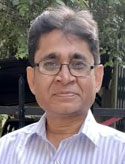Why Iranian Native Speakers Of Persian Look Down Upon The Subcontinental Persian

By
Sumit Paul, New Age Islam
27 May 2023
"Farsi
is still taught in a few schools of Calcutta as an optional subject. Some
colleges, such as Lady Brabourne and Maulana Azad, have Farsi departments.
Hearing the Farsi words coming out of their classrooms, it seems as though the
Bengali tongue has forgotten how to pronounce Farsi words. The students could
not read the inscriptions on St John’s Church, even though most were Muslims,
familiar with Urdu."
Arshad Saheb
asked me in the comment section whether I knew the Misra-e-Saani (second
line) of a couplet written by Amir Khusrau. I admit, I don't know. While
there's no alibi or justification for not being aware of the Misra-e-Saani
of Khusrau's Persian couplet, I must present a case study of subcontinental
Persian's perceived inferior status vis-a-vis Persian of the native speakers of
Iran. You might be surprised to learn that Iranian students and even scholars
are not well-exposed to the sub-continental Persian and its exponents like
Ghalib, Iqbal, Amir Khusrau, Raja Ram Mohan Roy, Urfi (a Persian poet from
Shiraz who spent the second half of his life in India at the court of Akbar),
Hali Panipati, Mir, Momin, to name but a few).
While
studying in Khorasan, I hardly read Amir Khusrau's Persian poetry despite my
mother tongue/s being Dari and Persian. Apart from Amir Khusrau's oft-quoted ' Kafir-E-Ishqam
Musalmani Mara Darkaar Neest....' I read only a couple of Persian couplets
written by him: Tu Shabana Mi Numaai Be Barkay Boodi Imshab, Ke Hunooz
Chashm-E Mastat Asar-E Khumar Daarad (You look sleepless, in whose embrace
did you pass the night; Your intoxicated eye has still the signs of tipsiness)
and Mun Tu Shudam Tu Mun Shudi, Mun Tun Shudam Tu Jaan Shudi/Taakas Na Guyad
Baad Azeen, Mun Deegaram Tu Deegari (I have become you, and you me, I am
the body, you soul; So that no one can say hereafter that you are are someone,
and me someone else).
Iranians
are too proud of their culture, language and heritage and look down upon
anything outside their socio-linguistic periphery. Etymologically, Iran and
Aryan (epitome of racial supremacy) are the same. Just like Oxford, Cambridge,
Harrow, Eton and Rugby hardly taught Indian English and its writers and poets
till the late 50s, Iranians never bothered to expose their children and
students to the sub-continental Persian. They call Persian of the
sub-continent, 'Falahal Qee Az'daz ' (originally a Dari phrase for '
utter nonsense'). Ayatollah Khomeini openly said that Iran never considered
Iqbal's Persian poetry as something worthwhile. ' It's rooted in Urdu, '
Khomeini would say.
Khusro's
Persian was seen as full of local idioms of the sub-continent, therefore,
worth-rejecting. Ghalib's Persian was considered as thousands notches below the
poetry of Jami, Rumi, Attar and Sanai. The general tenor in Iran regarding the
Persian of the sub-continent is still unchanged. This pontificating attitude
towards the Persian of India and Pakistan never let the Indo-Persian poets earn
accolades and encomiums from the toffee-nosed Iranians, who're so disdainful
just like the anglicized V S Naipaul who once said of Tagore's English, "
If you want to spoil your English in an hour, read Tagore." Iranian critic Nasrullah Agyeen said almost
the same of Iqbal, " Read Iqbal's Persian poetry if you ain't proud of
Iranian Persian."
I got a
little exposure to Indo-Persian literature only when I went back to England.
There I read Iqbal's Persian poetry for the first time. It was Zabur-i-Ajam
(زبور عجم,
Persian Psalms), written in a kind of Persian I was not very familiar with.
A lifetime
is not enough to read and learn. Bee Aamoz Ta-Zindai (there's no end to
learning). I came to India a few years ago. Let me be familiar with the Persian
of this land and its great writers and mystics like Amir Khusrau, Bedil and
Shibli Nomani.
Lastly, as
a native Farsi speaker, I cannot grasp anything when the Indian students and
even teachers of Persian recite poetry in Persian. The reason being, none can
speak it as an everyday language. The students in the Bachelor’s programme as
well as some completing their Master’s must go back to the Farsi alphabet, to
learn its correct sound and to distinguish letters like “f” and “p,” which are
often pronounced in a similar way due to their vernacular accent.
-----
A regular columnist for New Age Islam, Sumit Paul
is a researcher in comparative religions, with special reference to Islam. He
has contributed articles to the world's premier publications in several
languages including Persian.
New Age Islam, Islam Online, Islamic
Website, African Muslim News, Arab World News, South Asia News, Indian Muslim News, World Muslim News, Women in Islam, Islamic Feminism, Arab Women, Women In Arab, Islamophobia in America, Muslim Women in West, Islam Women and Feminism
